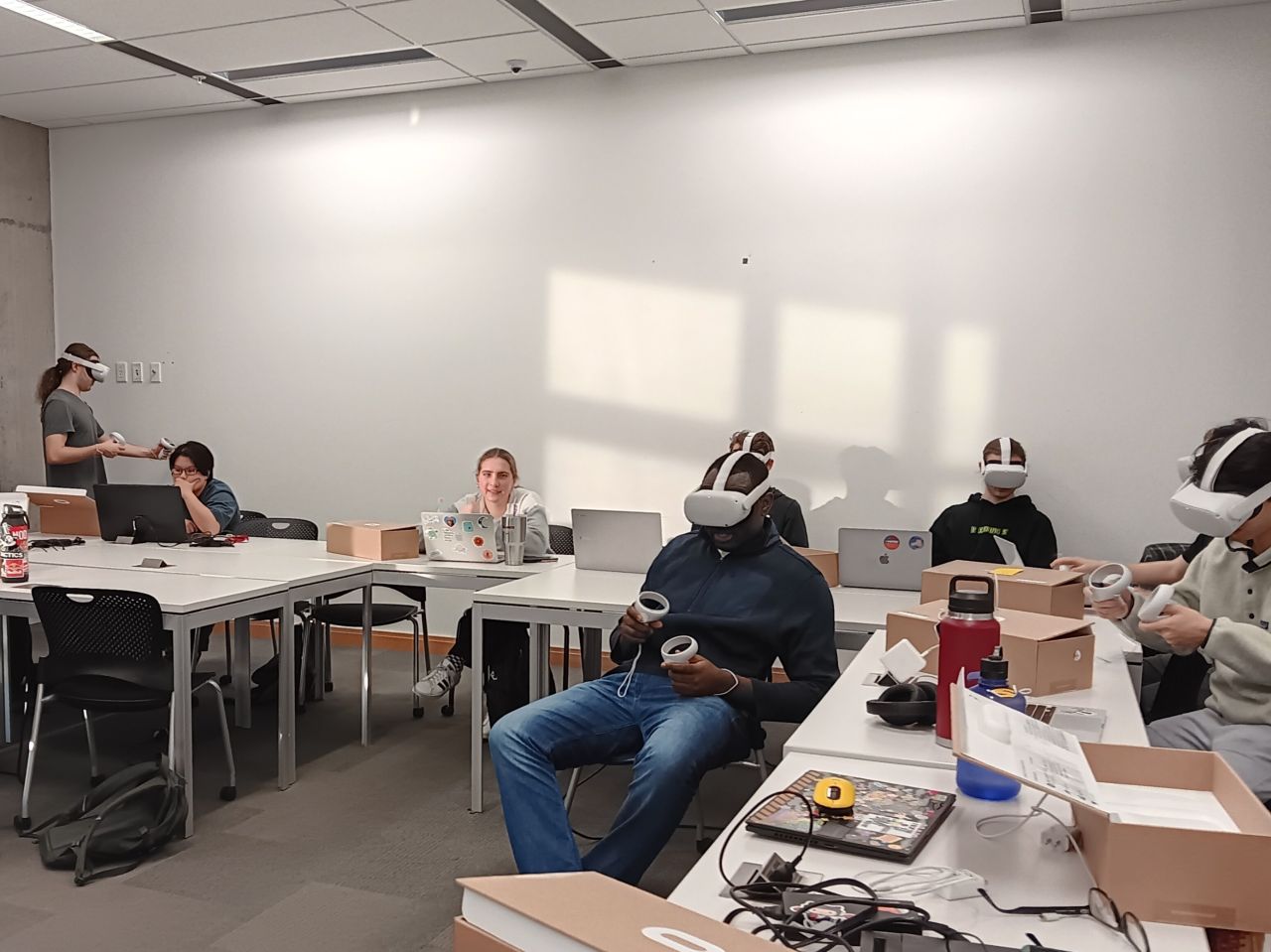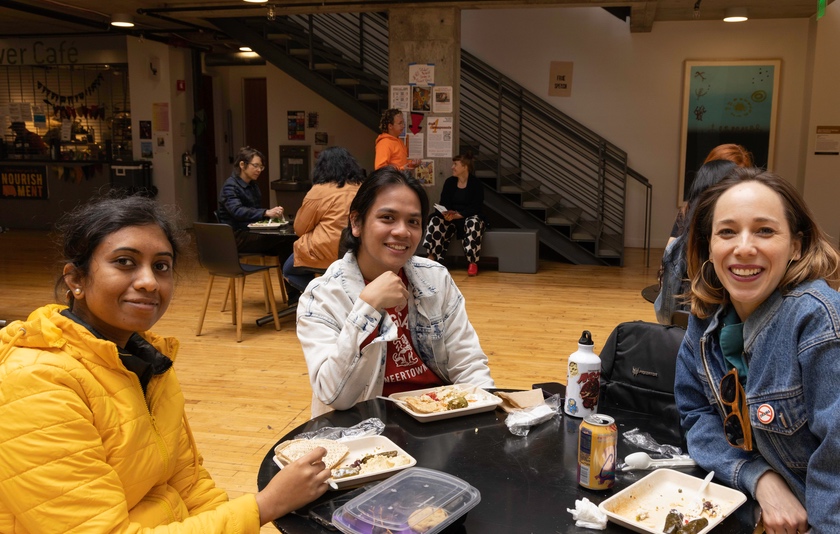Computing is the cornerstone of modern society and the training and education offered at Willamette’s School of Computing and Information Sciences has never been more important for those looking to find solutions to the world’s greatest challenges. Yet, according to Assistant Professor of Computer Science Fred Agbo, a key demographic is being left out of computing education: adults.
Computer literacy isn’t just important for job and career success. For older adults, Agbo says that computing can provide other benefits in their daily lives including helping older adults with cognitive development, building confidence, and empowering active citizenship. But lack of funding and attention have made gaining these crucial skills more challenging for adults.
Agbo’s research on broadening participation in computing (BPC) was recently accepted at the Technical Symposium on Computer Science Education, one of the world’s premier computer science conferences. We spoke with Professor Agbo to learn more about his research and about how adults can be brought into the computing revolution.
1. What is BPC and what does it mean to make computing more inclusive?

Agbo: BPC means broadening participation in computing. It is a program that engages the computing community to design strategies and frameworks to increase the participation of underrepresented groups in computing.
The goal of the BPC program is to democratize computing education by ensuring that more folks who normally would not have access to computing literacy are motivated to study computer science and even pursue a career in it. Moreover, this program promotes diversity, equity, and inclusion in all educational contexts such as the K-12, colleges, and post-college adults.
While there is evidence on BPC in K-12 education, there are limited studies that showcase adults in computing education. This is a fundamental gap that must be addressed. My research amplifies this gap, advocates for BPC in adult education, and aims to inspire discussion about how to advance computing education for adults.
2. Why is it so important for adults to receive computer education?
Agbo: In a digitally evolving world and with the rapid diffusion of technology influencing every aspect of life, everyone needs to be computer literate. Computer literacy in this context entails acquiring 21st-century skills such as creativity, computational thinking, and problem-solving abilities, which can be applied in all areas of life.
Adults (those with work-life, retirees, or senior citizens alike), do not just need these skills to remain relevant at their jobs or change careers, but also to unravel daily contemporary problems. In addition, adults can develop their cognitive capabilities through computing education, which will keep them active as they age. Computing education can also empower adults to uphold lifelong learning through citizenship education.
3. What does your research suggest about past efforts to expand computing education for adults?
Agbo: The digital disparity between older adults and the younger generation is not clear in the academic literature. My research investigated this gap by systematically examining the literature and found that attempts towards BPC in adult education started as far back as the 1980s. However, there has been little to no significant progress made over the years.
This study also investigated the learning outcomes for adults and found that there are positive gains for BPC in adults’ education. For example, studies show that computing education for adults increases their motivation, interest, self-confidence, and computational knowledge.
4. Why has computing education been slow to expand to adults?
Agbo: It’s difficult to say. However, there is evidence that suggests limited funding to support the development of BPC in adult education. Another issue that may have limited BPC in adult education is the faint attention it receives from computing educators and scholars. Advocacy for BPC in adult education is necessary, which is one of the contributions of this paper.
5. How can we help improve adult computer literacy?
Agbo: Computer science educators and researchers must identify the need for inclusion in designing strategies, frameworks, and curricula for BPC where adult education context is also considered a significant part of the program. Funding should be made available to the community of computing educators to carry out studies in developing curricula for computing education in adults.
Thankfully, the Special Interest Group on Computer Science Education — a highly respected symposium in the community — has recognized this need. This paper will hopefully engender actions towards developing adults computing education.




